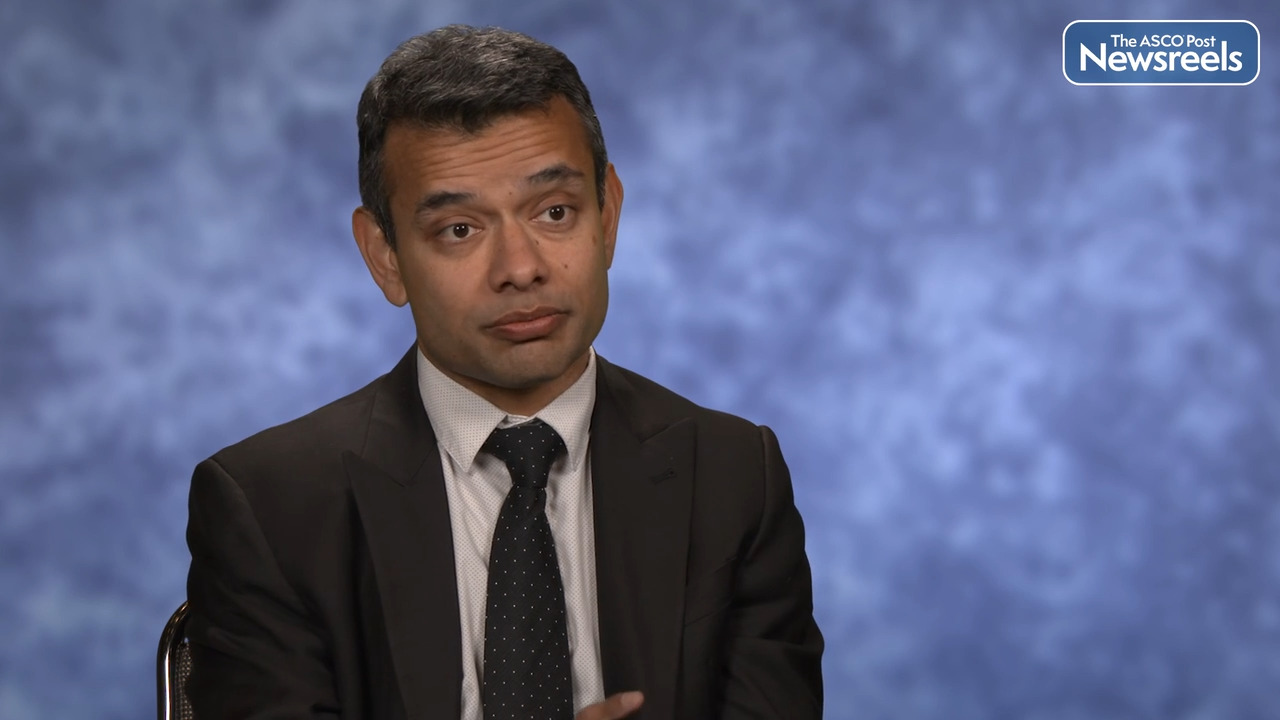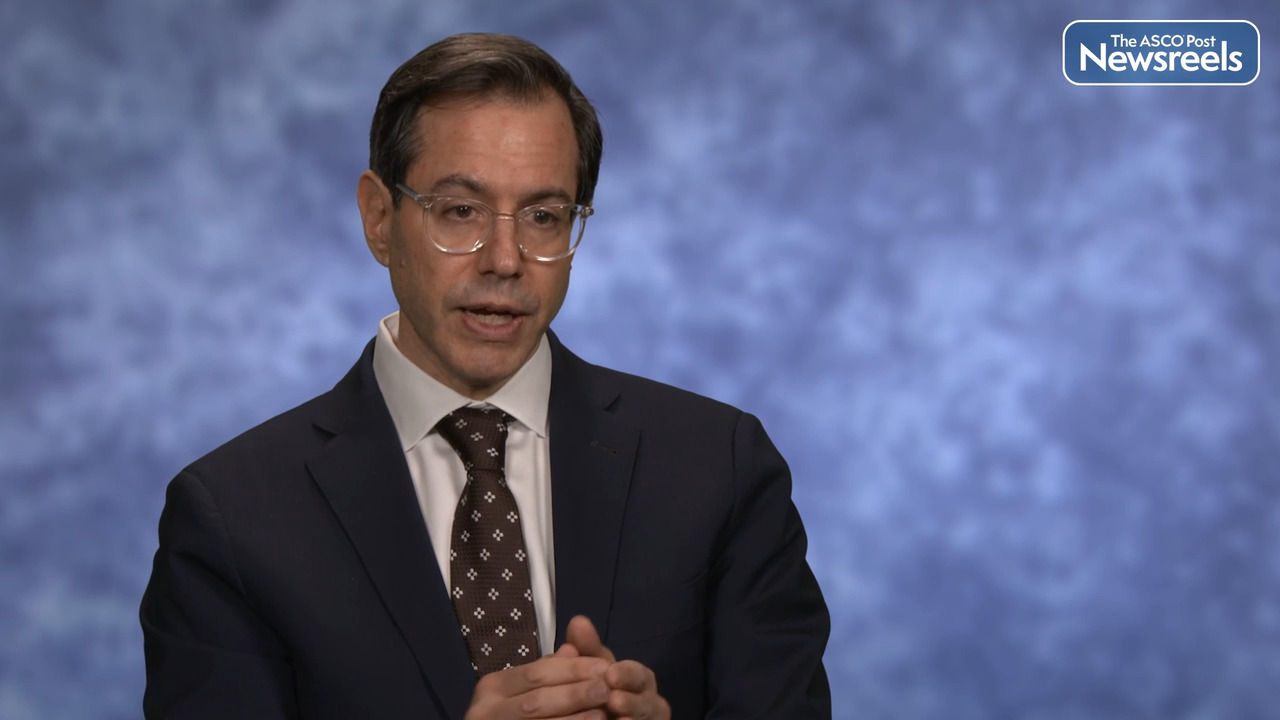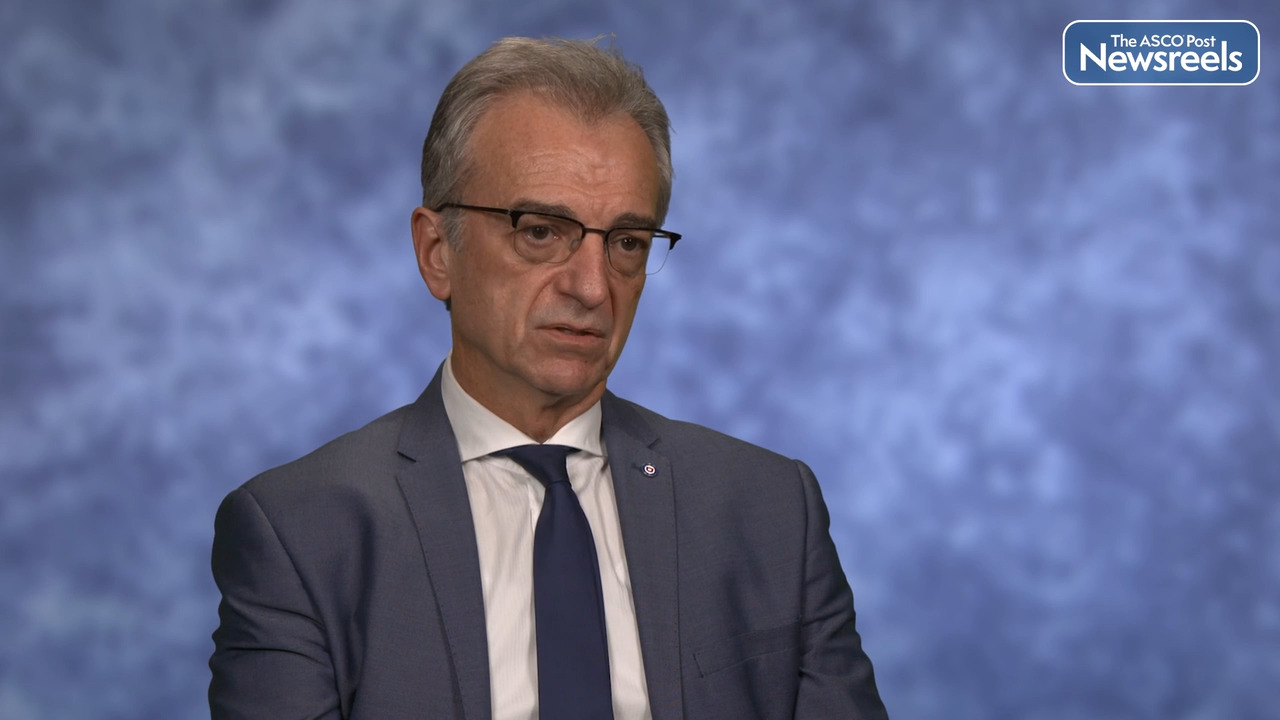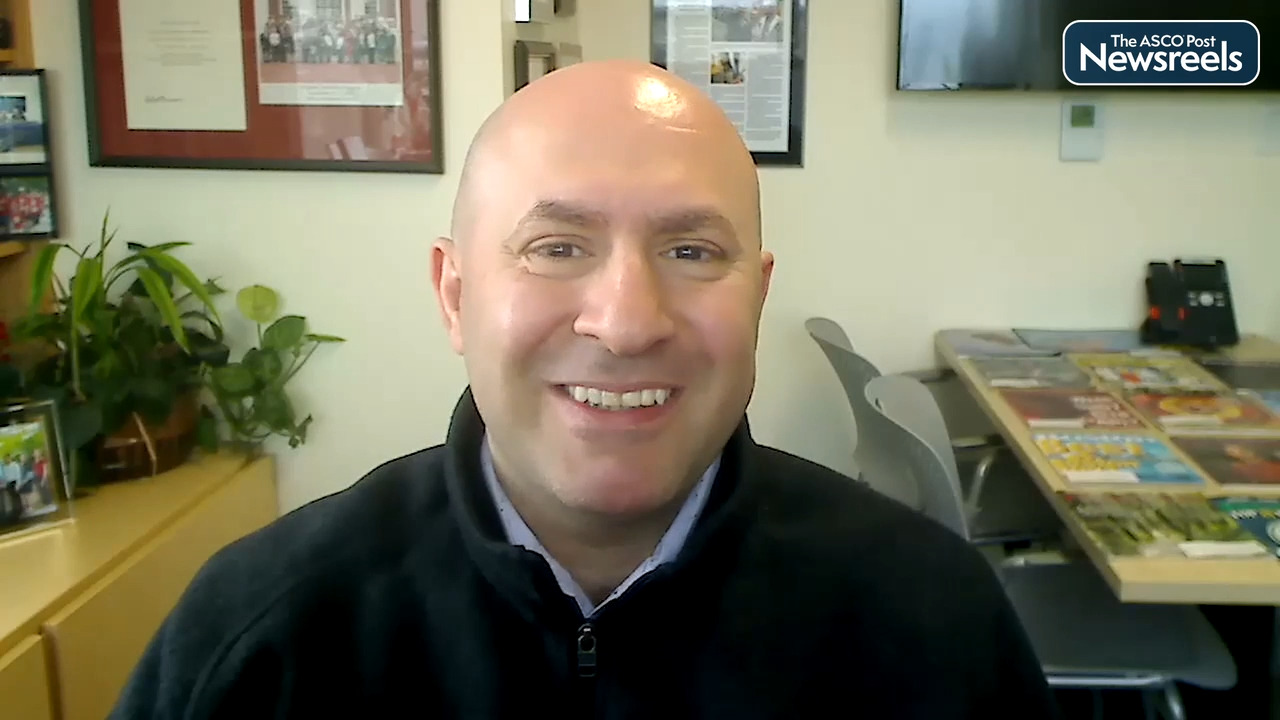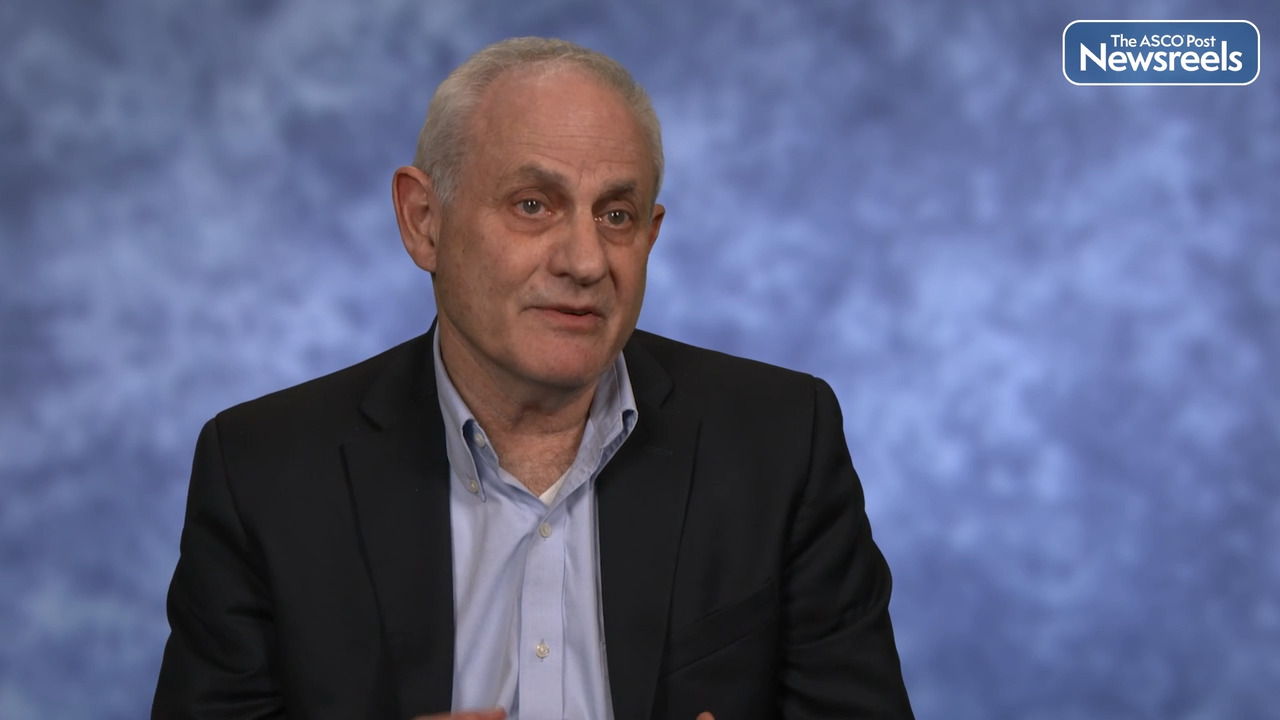Daniel P. Petrylak, MD, on Prostate Cancer: Latest Data on Pembrolizumab Plus Docetaxel
2023 ASCO Genitourinary Cancers Symposium
Daniel P. Petrylak, MD, of the Yale Cancer Center, discusses phase III findings from the KEYNOTE-921 study, which was designed to assess the combination of pembrolizumab and docetaxel in the treatment of patients with metastatic castration-resistant prostate cancer. They had not received chemotherapy, but their disease progressed on the next-generation hormonal agent, or they could not tolerate the agent. (Abstract 19).
Transcript
Disclaimer: This video transcript has not been proofread or edited and may contain errors.
The keynote study in metastatic prostate cancer was designed to ask the question as to whether immune therapy improved the survival and their radiographic progression-free survival of patients treated with Docetaxel with castrate resistant prostate cancer. The median survival of patients with Docetaxel is generally about 19 months. However, other studies have demonstrated that when Docetaxel is administered after next generation anti-androgens, the survival is somewhat lower, about 13 months. So, in a phase two trial, it was determined that the median survival of Docetaxel combined with Pembrolizumab was approximately 19 months, and this was the impetus for going fourth with a phase three trial comparing Docetaxel plus Pembrolizumab to the standard of care Docetaxel. In both arms, prednisone was administered at five milligrams BID. Unfortunately, the results of the study demonstrated that there was no improvement in radiographic progression-free survival or overall survival. The implications of this are that, at least from this particular standpoint, immune checkpoint therapy does not change the standard of care for chemotherapy for metastatic castration resistant prostate cancer.
What we need to do is to move forward and look at the different molecular markers. We've collected tissue as part of this particular trial, it was a requirement to see those patients who've responded to Docetaxel if there is any molecular signature that we can use. We know that Pembrolizumab is FDA approved in those patients who have microsatellite instability with metastatic prostate cancer, but that only represents 2% of the population, and there have been responses observed with Pembrolizumab in those patients who do not have microsatellite instability. We have to understand, of course, what the proper signature is for that. So, the future trials will not be looking at simple checkpoint therapy combined with chemotherapy in this particular setting, but will focus on looking at molecular signatures that may improve the response rates to immune therapy and to chemotherapy, and potentially combine the two of them together.
The ASCO Post Staff
Sumanta K. Pal, MD, introduces his City of Hope colleagues, Hedyeh Ebrahimi, MD, MPH, who discusses the prevalence of dietary modification and supplement use in patients with metastatic renal cell carcinoma, and Daniela Castro, MSc, who discusses expanding eligibility criteria in kidney, prostate, and urothelial cancer trials to more accurately reflect the real-world population and reducing exclusion criteria. (Abstract 662, 612, 34, 453)
The ASCO Post Staff
Matt D. Galsky, MD, of the Icahn School of Medicine at Mount Sinai and Tisch Cancer Institute, discusses results from CheckMate 274, which investigated nivolumab compared with placebo in patients with bladder or upper urinary tract cancer, following radical surgery to remove invasive disease. (Abstract LBA443).
The ASCO Post Staff
Aristotelis Bamias, MD, of the National and Kapodistrian University of Athens, discusses results from the phase III IMvigor130 study, which suggest that atezolizumab monotherapy continues to show better tolerability vs chemotherapy for patients with untreated locally advanced or metastatic urothelial carcinoma. (Abstract LBA441).
The ASCO Post Staff
Toni K. Choueiri, MD, of Dana-Farber Cancer Institute, discusses a biomarker analysis from the phase III CheckMate 9ER trial of nivolumab plus cabozantinib vs sunitinib for the treatment of patients with advanced renal cell carcinoma. The ongoing study aims to identify a predictive biomarker that may potentially guide therapeutic choices. (Abstract 608).
The ASCO Post Staff
Michael B. Atkins, MD, of Georgetown Lombardi Comprehensive Cancer Center, discusses treatment-free survival outcomes from the HCRN GU16-260-Cohort A study of patients with previously untreated advanced clear cell renal cell carcinoma who received nivolumab and salvage nivolumab plus ipilimumab. The regimen appears to result in substantial treatment-free survival with few treatment-related adverse events. (Abstract 604).
